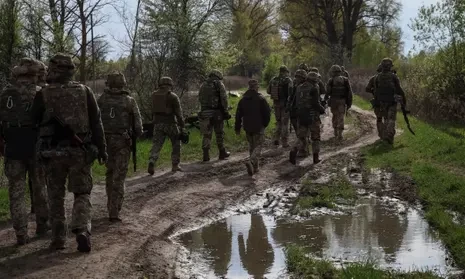
It is a Friday night and as the flight captain announced, . . . 10 minutes to landing, I peeped through the window to check the glittering lights that used to characterise the city which never slept Harare.
Before I made sense of what looked like orange disco lights scattered across the vlei, the plane had touched down.
The excitement of looking forward to seeing beloved ones and the anxiety of not knowing what to expect cast me into a wilderness of ambivalence.
Finally, I settled for an explorative adventure. Welcome to Zimbabwe, comrade. That was Malven, a good friend of mine who picked me up from the airport.
Still drowned in my world of ambivalence his words sounded both sarcastic and welcoming.
Sarcastic as he has always pushed me to increase the frequency of my visits back home and welcoming as I needed to hear those words from someone.
As we drove towards the city he updated me on new developments, from politics, economics, social issues including his new job to friends who died and those who survived the turbulent times.
He gave me tips on how to survive in an environment where a dog eats another as long there is a profit to be had at the end of it.
- Chamisa under fire over US$120K donation
- Mavhunga puts DeMbare into Chibuku quarterfinals
- Pension funds bet on Cabora Bassa oilfields
- Councils defy govt fire tender directive
Keep Reading
This was to be confirmed by Roy, who started his own small IT venture after watching his employer fold under the vagaries of the economic downturn. To survive, you need to know people in high offices, lest you spend the day chasing shadows, Roy opines.
I asked Malven many questions. I asked if he knew the new presidential aspirants such as Jones Musara, Raymond Chamba, Joseph Makamba Busha and others. I asked why the streets were dark, when houses had electricity.
He told me that the lights could be from generators. He also said those presidential aspirants were from the Internet.
As we approached the city, the worse the trip became corrugated, but we meandered, undulated and manoeuvred through the dead city centre which used to rumble and buzz Friday nights. Is Harare now sleeping, I wondered?
The situation was the same in Chitungwiza. As we drove along Seke Road we joked about how other countries were introducing GPS (global positioning system) in their driving lessons, while here in Zimbabwe, we should be focusing on integrating pothole evasion as part of our learners driving lessons.
Without Malven, driving around town would have been tough for me. He warned me of all major potholes in advance, hazards for which there are no road signs. I had learnt the previous day that potholes are a source of business opportunities.
I had visited a Warren Park-based panel beater whose job, among others, is to fix fallen bumpers as a result of the potholes. Fixing potholes may mean less business for him.
It is the same Sunday at 8.23pm we are in St Marys knocking at my uncles gate.
For almost 10 minutes we banged on the gate and suddenly a voice bellowed from behind it.
Again, I am taken aback as St Marys used to be a hive of activity. The posters that used to decorate Rugare Crescent and the loud music that belted out from the nearby beerhall are no more.
The roads where children used to play are all sand, potholes, puddles of sewage a danger to their lives.
Television too has become so boring, one reason people sleep early.
The whole of Chitungwiza seemed buried in a cloud of darkness. The tower lights which lit the land of Chaminuka are either swallowed by the darkness of the night or there is dimming light struggling to keep itself alive.
The noise of the aeroplanes landing and taking off is no longer as frequent as it used to be. In fact, we are forced to celebrate the arrival of Emirates, while our own Air Zimbabwe lies almost lifeless.
After the greetings and updates we took off. As we drove back to Harare, my mind started wandering. I remembered when potholes and power cuts used to be headline news. I also started reflecting that it seemed with every problem we have experienced, we have solved none.
In fact, potholes have multiplied. Was I wrong to conclude that Zimbabwe is ageing and it may never be young unless the young step forward? Perhaps it is time people like Malven, Roy, myself and yourself stepped forward and crafted a new Zimbabwe for our children. I wandered further down the annals of history. Zimbabwe is not just the teapot- shaped country that we see on the map, it is bigger than that.
History reminds us that Great Zimbabwe was once the capital of the Kingdom of Zimbabwe, which existed from approximately 1100 to 1400 during the countrys Late Iron Age with Mapungubwe, at the border of Botswana, South Africa and Zimbabwe today, as the commercial capital.
The word great distinguishes the empire from the many hundreds of small ruins, known as Zimbabwes, spread across southern Africa.
There are 200 such sites in the region, such as Bumbusi in Zimbabwe and Manyikeni in Mozambique. The same history tells us that somewhere in 13th century the economic growth rate of Great Zimbabwe was equivalent to some of the big cities today such as London, Lisbon, New York and more. Where did our ancestors go wrong and are we paying for their mistakes?
Even as the colonial settlers invaded Africa, Zimbabwe is among the places they preferred to settle and consolidate their political and economic power. As if replicating the Great Zimbabwe Kingdom, it federated Malawi, Zambia and Zimbabwe into one territory, but Zimbabwe as the centre of power.
Still today I ask where did we go wrong? Has the great nation found peace and comfort in failure?











